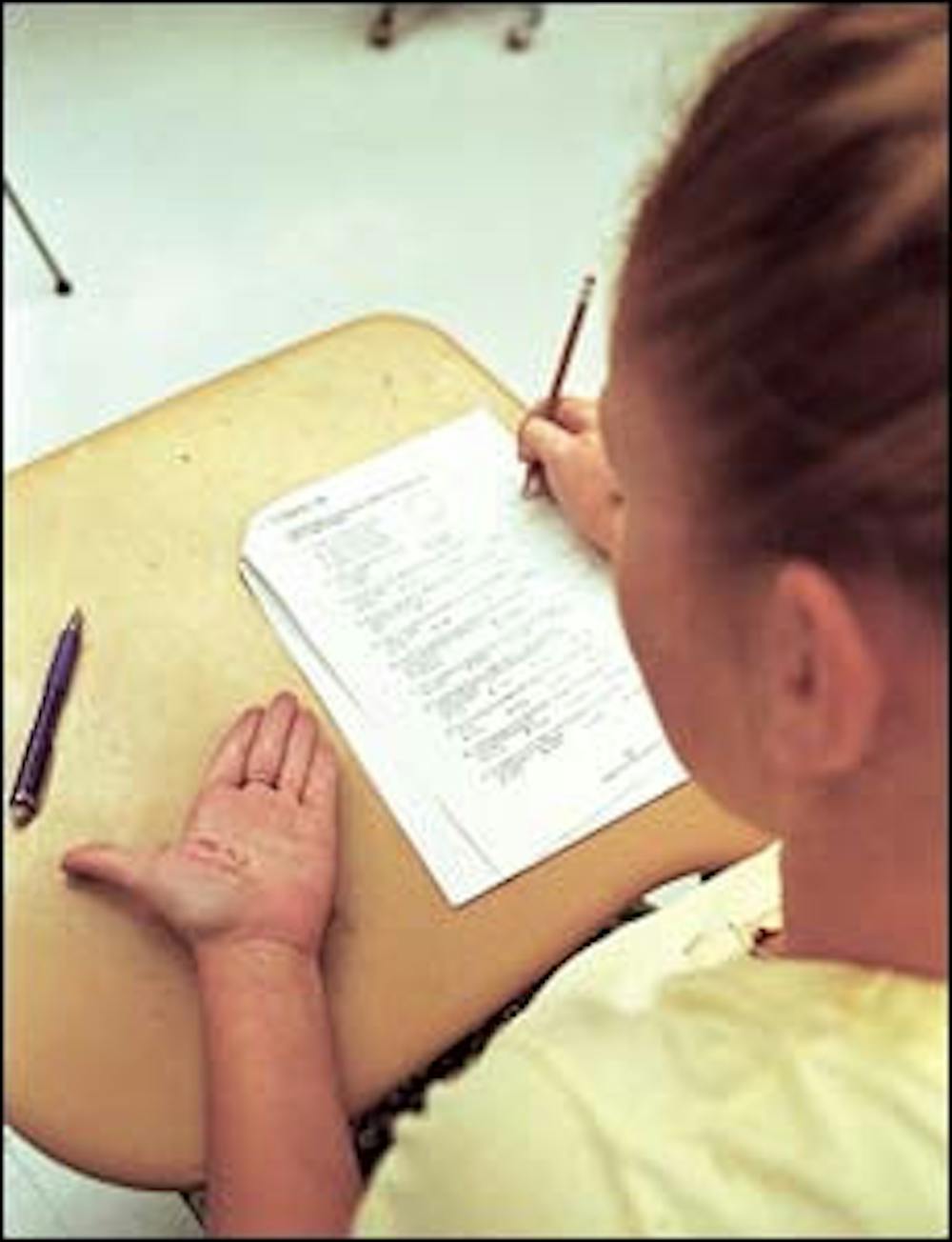Cheating makes Rob Gresser angry.
The mechanical engineering junior, who claims to have never cheated, says he is aggravated that others get ahead by unethical means while he spends so much time learning the honest way.
"It has always frustrated me when students get away with cheating," said Gresser, who graduated from ASU in 1995 with a business management degree. "I have never cheated."
Gresser's frustration with academic fraud and the University's current Academic Integrity Policy, which he believes is too lenient [see inset], motivated him to develop his own cheating policy.
His plan, which he has presented to the Academic Senate, proposes all students be required to read a code of conduct "in book format" and sign a form to confirm they received it. Then, if a student is caught cheating, he or she must meet with a dean and a professor to determine a suitable punishment.
And those who use technology to cheat - with text messaging on cell phones, for example - are punished with a failing grade.
His proposal also includes a "three strikes and you're out" provision that would automatically expel a student caught cheating three times.
Gresser's policy also would include a cash reward for those who snitch on students who cheat.
"It will probably be something small like a [Memorial Union] gift certificate," Gresser said. "But if your information leads to 20 people or so, it would be a little more like $30 to $40."
He said an ethics course as a general studies requirement would also help curb academic dishonesty.
"It just frazzles me that students aren't taught how to analyze ethical dilemmas," he said.
Two professors, also concerned with academic dishonesty, submitted their own cheating policy proposal, but one more severe than Gresser's. Economics professor Stephen Happel and legal and ethical studies professor Marianne Jennings want to expel cheaters after the first offense.
Happel said he wants to eliminate dishonest students because they graduate and become unethical in their field of work.
"This is why you have Enron scandals, because you don't learn about it from the beginning," Happel said.
He said that one strike, instead of three, is sufficient for expulsion.
"Three strikes is too lenient," Happel said. "We are saying if you cheat, you are out."
Gresser said he and Happel want the Academic Senate to adopt a stricter policy for the fall. Happel also said he would like local newspapers to print the names of people caught cheating.
However, Academic Senate President George Watson said there's no chance the policy would take effect in the fall.
"It's highly unlikely," Watson said. "It probably would go to a joint committee of ASASU and the Academic Senate."
Associated Students of ASU President-elect Brandon Goad said he thinks Happel's policy is too strict.
"I don't think people should be expelled the first time," Goad said. "It's a little too harsh for me. There should be a discretionary policy, an appeals process, and all things should be considered."
Want to be heard? Post your opinion in the forum below.
Reach the reporter at sarah.muench@asu.edu.
|
||||||||||||||||||||||||||




